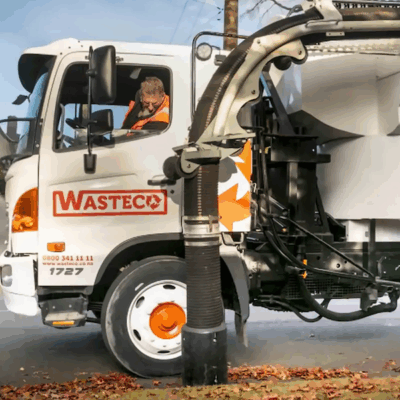Who’s afraid of the big, bad bot?
AI is a chance for businesses to increase competitiveness, grow profitability and reduce operating costs. Its time to make friends with the monster under your desk.
AI offers the biggest opportunity yet for SMBs to increase competitiveness, grow profitability and reduce operating costs. So Chris Dick says its time to make friends with the monster under your desk.
Mention Artificial Intelligence and people picture a Hollywood blockbuster: robots smarter than humans, crime-predicting algorithms, sentient spaceships and a budget the size of Lord of the Rings. At the very least, only the major players can afford it – right?
Actually, most of us are already using AI without even realising it. Outside of movie theatres, AI is often small, simple and well within reach of the average small or medium business. Believe it or not, SMBs are actually in the best position to get the most out of AI and Kiwi business owners shouldn’t be afraid to dip their toes in the pool.
The beauty of being a small business is that often there aren’t large legacy systems to rebuild, making SMBs more agile when it comes to adopting new technology like AI. Yet our pioneering and number eight wire attitude seems to have disappeared when it comes to trying something new like AI. It‘s surprisingly easy to implement small changes, like using AI to automate repetitive tasks and tailor your services better. Even a small change can make a big difference to how quickly you can get a job done, or the cost of doing it.
The future hasn’t arrived with a lot of loud special effects, laser lights and smoke machines; it’s quietly become an everyday part of our homes and offices. AI is any intelligent tool that learns customer preferences and behaviours, or how to optimise those tedious yet important processes, from a simple transcription service to a smart device that can spot the best place to plant crops. It can be as complex or simple as you need it to be.
Think of any website that can offer recommendations based on your shopping habits. Think of apps that help commuters and businesses plan the best routes based on traffic. Even speech-recognition tools like the real-time Microsoft Translator in Office 365 are now regularly used to automate customer service and help teams around the world collaborate.
Not convinced? Consider this. It takes us on average 16 minutes to refocus after just one email, a whopping 28 percent of our time is spent managing emails and 20 percent of our time is spent just looking for the right information. Meanwhile, there are ever increasing amounts of data coming at us and there’s an expectation with all the devices available that we’ll produce more work than ever, while still managing to make time for critical thinking.
Some simple AI tools can cut through a lot of this noise and help organisations make decisions faster (using the right data!). Smart technology can learn how to work out the context of your search, so it’s quicker to find what you’re looking for. It can make suggestions based on insights drawn from all that data streaming in, so finding new solutions is a lot easier. There are even AI tools that quickly transform your ideas into slick business presentations or streamline your inbox.
“AI offers the biggest opportunity yet for SMBs to increase competitiveness, grow profitability and reduce operating costs.”
AI offers the biggest opportunity yet for SMBs to increase competitiveness, grow profitability and reduce operating costs. It will help us reach more people, personalise and use data to enhance customer experience and our products and services out faster and easier than ever before. As well as freeing up employees to work on the things that add value.
Deep down we know at least most of the benefits, yet we’re still afraid. We need to move on from the mindset of AI being the monster under the bed. It’s about investing in the future.
Staying competitive
It’s particularly important that as a nation of small or medium business owners we stop sitting on the fence. Why? Because our geographical position and our typical reliance on primary industries means we need to find new ways to remain competitive in a global economy. Digital services are set to produce more than half of New Zealand’s GDP by 2020, and because they aren’t limited by the weather or quality of the soil, New Zealand entrepreneurs are on the same playing field as the rest of the world. However, the window of competitive advantage will be small, and if we don’t jump through it a competitor will. Our lack of AI adoption puts us at risk.
Before you assume AI is out of reach, take a closer look at what’s already going on behind the scenes in your office. Smart technology can very easily be included in your business, creating a better customer experience as well as boosting the bottom line. So why are we still not trying AI for size?
I urge New Zealand to double its pace of AI adoption, so by 2020 we’re not still talking about opportunities but gains. It’s time to move from the paddling pool and take the plunge.
Chris Dick (pictured) is head of marketing at Microsoft New Zealand.






